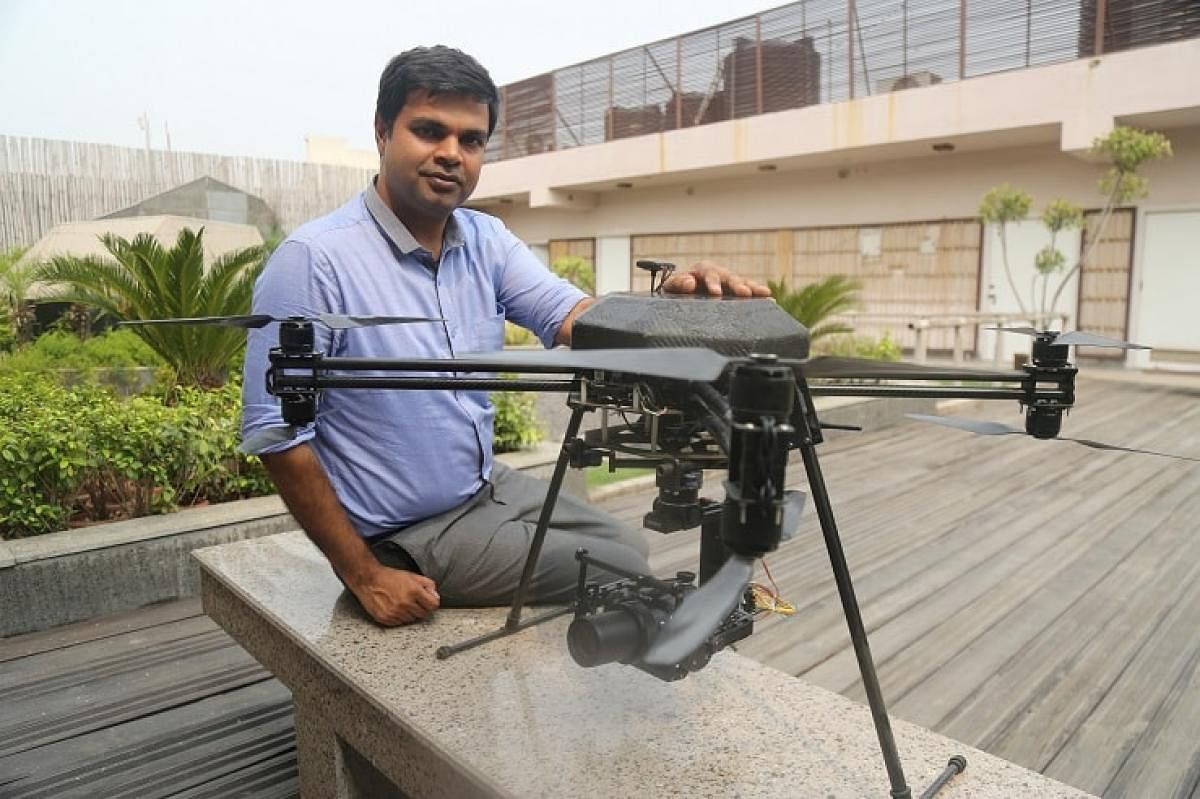
Very soon drones will hover over the skies in select villages of Haveri district to assist farmers in carrying out farming activities.
The state government has roped in Delhi-based firm Omnipresent Robot Tech to deploy drones on a pilot basis to assess the crop acreage, crop types, crop health and yield estimation among others.
According to Gaurav Gupta, principal secretary, Department of Information Technology, Biotechnology and Science and Technology, the use of drones in farming activities is going to be a gamechanger in Karnataka. “The project is being piloted in kasaba-hobli of Haveri taluk in an area of about 200 sqkm,” he told DH.
Gupta said the drone operations will be carried out over a period of three months during the crop life cycle in the current kharif season. “The Karnataka Science and Technology Promotion Society (KSTePS), a subsidiary organisation of the Department of Science and Technology, has now taken the initiative to implement the pilot project,” he said.
KSTePS has awarded the project to robotics, industrial UAV/drone and video analytics solutions provider Omnipresent Robot Technology. The government has made a grant provision of Rs 2.5 crore for implementing the pilot project. Commenting on the project, Omnipresent Robot Tech founder Akash Sinha said the company will provide data on crop health from multi-spectrum images.
“We give inputs on crop water content, requirement of fertilisers and pesticides, health condition of plants and this will help 10% to 15% hike in production,” he said. The company’s data analytics platform Nervecentre will give AI-based analysis on a real-time basis on the crop type, area, volume and health of crop among others.
“We will create a map of our own based on the orthomosaic images by stitching together thousands of images. It will be shared with extension officers and farmers to do the needful,” he said. He said the company will ply six drones and it will be backed by four other drones, which are manufactured at the Visakhapatnam plant. The company will also instal ground-based control points to collect data.
“Our data can give clarity on how much crop production will happen. It will help the insurance firms and banks to inform the farmers to take appropriate decisions on repayment of loans,” he added.